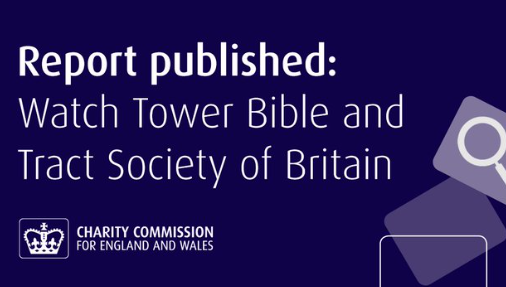The Charity Commission has criticised the trustees of Watch Tower after concluding its nine-year investigation into child protection advice the Jehovah’s Witness charity provided to congregations, as dozens of allegations of abuse were being made.
Its report is critical of trustees “conduct during the inquiry” saying they were “not as straightforward or transparent as they should have been” in relation to their child safeguarding responsibilities.
The regulator opened its inquiry into Watch Tower Bible and Tract Society of Britain, which is more commonly known as Watch Tower, in 2014 amid concerns around safeguarding and child protection advice provided to Jehovah’s Witness congregations.
This followed talks between the charity and the regulator dating back to 2007 in the way safeguarding incidents were handled and the adequacy of its guidance to congregations, amid dozens of allegations of child abuse levelled against among others elders and ministerial servants.
Between 2009 and 2019 a total of 67 allegations of abuse were made.
The regulator has concluded its probe into the charity after Watch Tower no longer became the body responsible for safeguarding within congregations.
But the Commission’s report into its probe adds that “during certain phases of the investigation” the trustees’ “communications were protracted, with the charity’s responses often failing to provide the information requested or sufficient clarity to satisfy the inquiry, giving rise to further questions”.
The regulator’s report states that legal challenges brought by the charity against some of the Commission’s decisions and orders “partly explain the significant delays to the inquiry”.
We’ve concluded our inquiry into Watch Tower Bible and Tract Society of Britain.
— Charity Commission (@ChtyCommission) August 4, 2023
Read more: https://t.co/7r1iXTpmGy pic.twitter.com/4UeeJ0n208
The body now responsible for safeguarding congregations is the Kingdom Hall Trust (KHT). The regulator has now opened a compliance case to work with the Trust’s trustees “to ensure that the safeguarding policies, guidance, and procedures of KHT provide a safe environment for beneficiaries within” all Jehovah’s Witness congregations.
“We are clear that a charity must be a safe, trusted environment and that protecting people and safeguarding should be a governance priority for all charities, regardless of size, type or income,” said Charity Commission chief executive Helen Stephenson.
“I am pleased that this long-running inquiry, which demonstrates the Commission’s resolve and determination to ensure that safeguarding policy issues are addressed comprehensively by charities, has now concluded.
“Our continuing regulatory compliance case involving the Kingdom Hall Trust aims to ensure that the KHT’s safeguarding policies and procedures protect congregation members and those that come into contact with KHT.”













Recent Stories